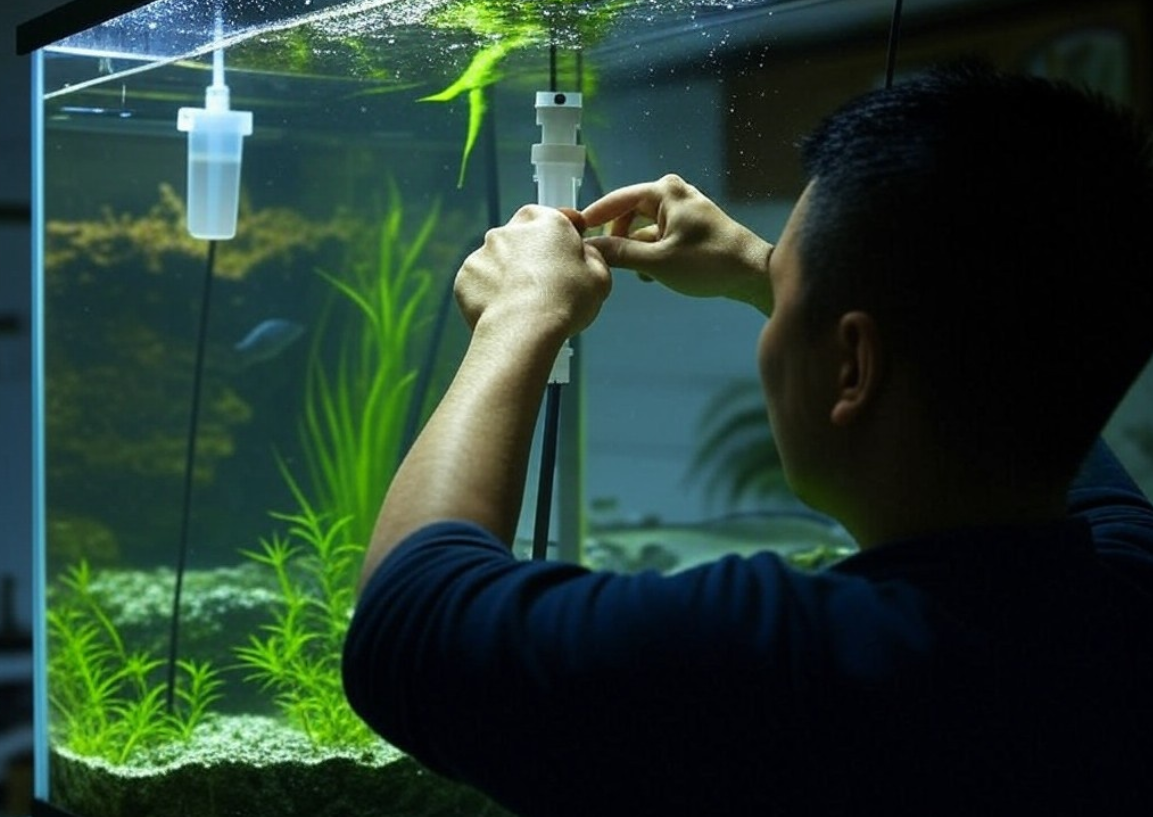Table of Contents
![]()
Introduction
A drip system in an aquarium refers to an automated method of performing water changes through a slow, controlled release of fresh water into the tank while simultaneously siphoning out the same amount of water. This method is particularly beneficial for maintaining the health and stability of aquatic ecosystems. This article will explore the numerous advantages of incorporating a drip system into your aquarium setup.
Water Quality Management
Stable Water Parameters
One of the primary benefits of a drip system is its ability to maintain stable water parameters. By slowly introducing fresh, conditioned water, levels of pH, temperature, and salinity can be kept consistent, which is crucial for the welfare of sensitive aquatic species. Sudden changes in these parameters can lead to stress or even death in fish and invertebrates, but a drip system mitigates this risk by ensuring gradual changes.
Reduction of Ammonia, Nitrite, and Nitrate
Drip systems facilitate the dilution of harmful waste products like ammonia, nitrite, and nitrate. These compounds can accumulate quickly in an aquarium, especially in densely populated or heavily fed tanks. By continuously replacing a small amount of water, the drip system helps keep these toxins at safe levels, supporting the biological filtration process without overwhelming the beneficial bacteria.
Oxygenation
Regular water changes through a drip system can increase the dissolved oxygen levels in the tank. Fresh water naturally carries more oxygen, which benefits all tank inhabitants, particularly those like fish that rely heavily on oxygen for respiration.
Biological Stability
Beneficial Bacteria
The health of an aquarium’s biological filter, composed of beneficial bacteria, is paramount. These bacteria are responsible for converting toxic ammonia into less harmful nitrites and then nitrates. A drip system promotes a stable environment for these bacteria, avoiding the shock that can come from large water changes, thus ensuring the nitrogen cycle functions efficiently.
Reduced Stress on Livestock
With fewer drastic changes in water chemistry, the fish, corals, and other aquatic life experience less stress. This stability can lead to better health, growth, and reproduction rates among the tank’s inhabitants.
Maintenance and Ease of Use
Automation
Drip systems automate the process of water changes, which can be a significant advantage for busy aquarists. Once set up, these systems can operate on a schedule or continuously, reducing the need for manual intervention except for periodic checks and adjustments.
Time and Effort Saving
Instead of performing large, labor-intensive water changes, aquarists can rely on the drip system to make small, regular changes. This approach not only saves time but also ensures that water quality is managed more effectively over time.
Precision in Water Changes
A drip system allows for precise control over how much water is changed. This precision is beneficial in aquariums where even small changes in water volume can affect the tank’s delicate balance.
Healthier Aquarium Ecosystem
Disease Prevention
Regular, small water changes help prevent the accumulation of pathogens, reducing the risk of disease outbreaks. By removing waste and uneaten food, the drip system contributes to a cleaner, healthier environment.
Coral Health in Reef Tanks
For reef aquariums, maintaining water quality is critical for coral health. Drip systems support coral growth by providing a stable environment and reducing detritus, which can smother or harm corals if not managed properly.
Plant Growth in Planted Tanks
In planted aquariums, drip systems help maintain optimal nutrient levels for plant growth. By avoiding the nutrient spikes associated with large water changes, plants can thrive, contributing to the tank’s overall health.
Economic Benefits
Longevity of Equipment
Cleaner water means less strain on filtration equipment, potentially extending the life of pumps, filters, and media. This can represent significant savings over time, considering the cost of aquarium equipment.
Cost-Effective Over Time
While setting up a drip system might require an initial investment, the reduction in chemical treatments, medications, and the replacement of aquatic life due to water quality issues can make it a cost-effective solution in the long run.
Environmental Impact
Sustainability
Using less water through smaller, more frequent changes aligns with sustainable practices, conserving water while still maintaining optimal tank conditions.
Reduced Chemical Use
With better water quality management, there’s less need for water conditioners, buffer solutions, or other chemicals that might otherwise be used to correct water parameters.
Conclusion
In summary, the use of a drip system in an aquarium offers a multitude of benefits ranging from water quality management to economic and environmental advantages. For any aquarist looking to maintain a thriving, low-maintenance aquarium, a drip system could be a game-changer, ensuring a stable, healthy environment for all tank inhabitants.
Additional Tips
Setup Tips
- Choose the right size drip system for your tank based on volume and the needs of your aquatic life.
- Use a reliable water source, ensuring it’s pre-conditioned before entering the tank.
Maintenance
- Regularly check the drip system for any blockages or leaks.
- Monitor water parameters to ensure the drip system is performing as intended.
Troubleshooting
- Flow Issues: Adjust the drip rate if you notice the water level is either too high or too low.
- Water Quality Problems: If parameters aren’t stable, check if the drip rate needs calibration or if there’s an issue with the water source.
By integrating a drip system into your aquarium care routine, you’re not only simplifying maintenance but also significantly enhancing the life quality of your aquatic pets.
Share This





Be the first to comment